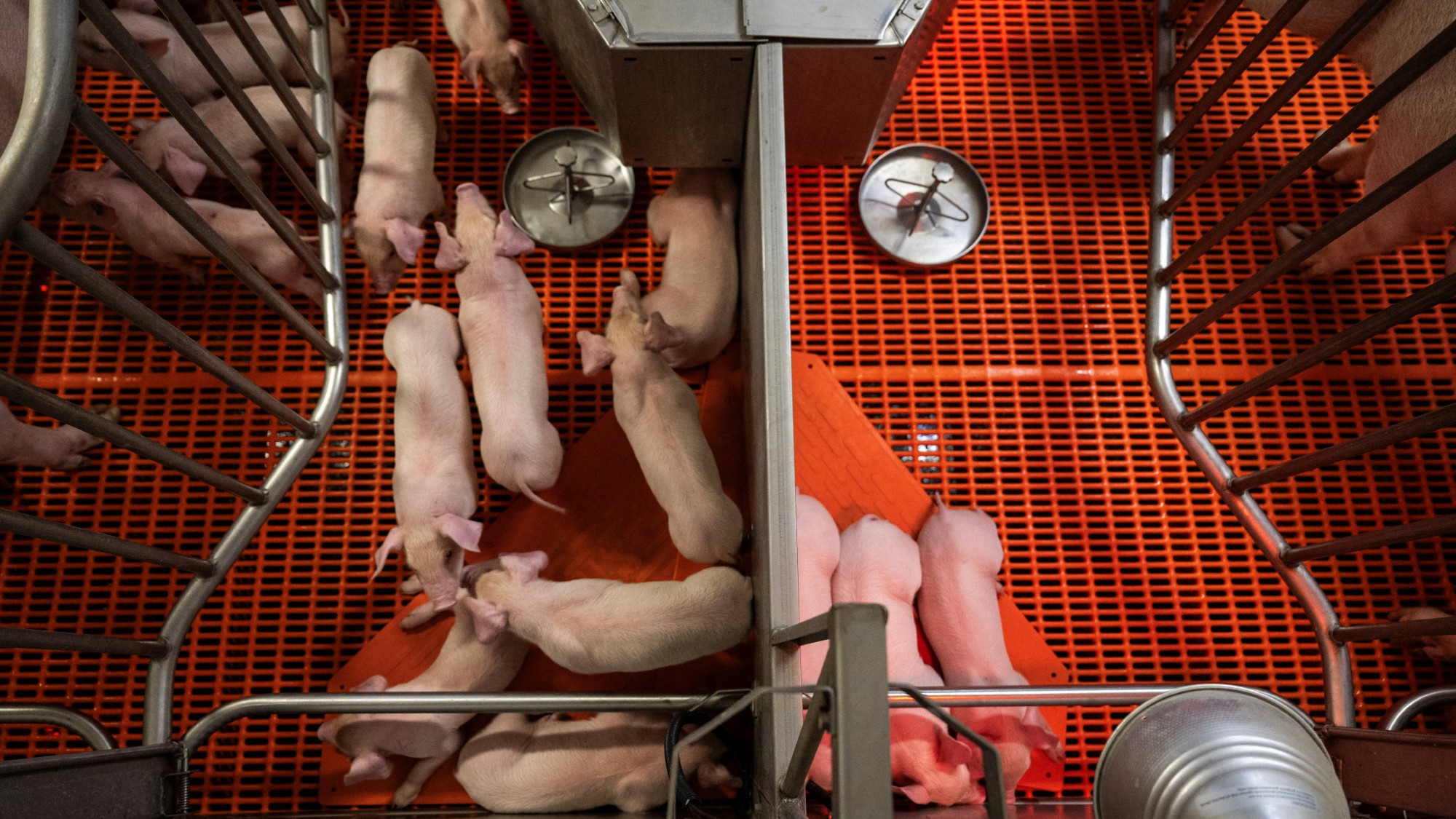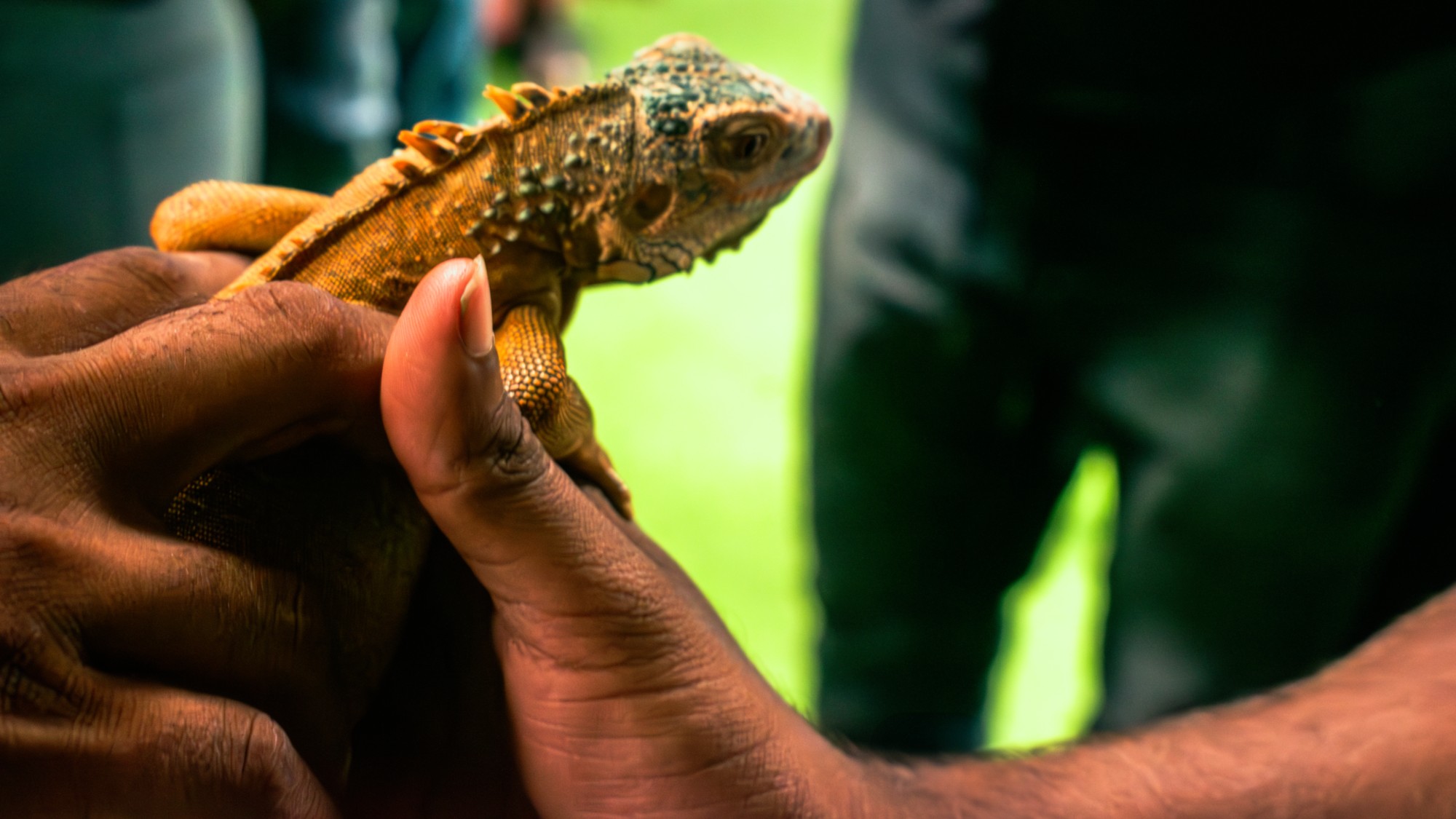Are pig-organ transplants becoming a reality?
US woman has gene-edited pig-kidney transplant, and scientists hope experimental surgery could save thousands of lives

A free daily email with the biggest news stories of the day – and the best features from TheWeek.com
You are now subscribed
Your newsletter sign-up was successful
The successful transplant of a gene-edited pig kidney into a human patient has raised hopes that cutting-edge technology can make pig organs safe for other transplant patients.
Towana Looney, a 53-year-old grandmother from Alabama whose (only) kidney was failing, is hopeful of "a new chance at life" after undergoing the operation, said NBC News. She is the fifth living person to receive a genetically modified pig organ. The previous four patients died shortly after the procedure, but Looney, who was in a much better state of health than previous recipients, and is now recovering well.
The pig kidney used by Looney's doctors, at NYU Langone Health in New York, had undergone a promising new combination of gene edits. The procedure is still experimental, and only available to patients who are left with no other option. But for the hundreds of thousands of people worldwide who are on the waiting list for an organ – and the many others who are ill but who have not yet made it onto a list – it offers a glimmer of hope.
The Week
Escape your echo chamber. Get the facts behind the news, plus analysis from multiple perspectives.

Sign up for The Week's Free Newsletters
From our morning news briefing to a weekly Good News Newsletter, get the best of The Week delivered directly to your inbox.
From our morning news briefing to a weekly Good News Newsletter, get the best of The Week delivered directly to your inbox.
How does the gene editing work?
Given the shortage of donor organs, scientists have tried for years to make animal-to-human transplants work. But "now they can edit pig genes", there's real hope – as long as the editing can "bridge the species gap" and "keep the human immune system from immediately attacking the foreign tissue," said The Independent.
Multiple companies are already "engineering pigs to be more humanlike" for optimal organ-transplant suitability, said AP News. Some of the gene edits are "knockouts", removing pig genes that would threaten the human immune system, while others insert human genes to lessen the risk of rejection and blood clots.
These engineered pigs could "someday provide an unlimited supply of kidneys, livers, hearts, and other organs" for human transplantation, alleviating the current "chronic shortage" and saving "thousands of patients every year", said NPR.
"It would change everything," Dr Robert Montgomery, director of NYU Langone's Transplant Institute, and the lead surgeon in Looney's operation, told the US news outlet. "I think it would revolutionise medicine, for sure."
A free daily email with the biggest news stories of the day – and the best features from TheWeek.com
What is the law on animal organ transplants?
Scientists have already transplanted pig organs into monkeys, baboons, and dead humans who'd donated their body for research, but transferring animal organs into living human recipients – or xenotransplantation – is still experimental, and controversial.
There's no specific legislation prohibiting xenotransplantation in the UK but there are animal welfare laws that touch on the issue. In the US, the Food and Drug Administration (FDA), which regulates public health, has not yet approved clinical trials but has allowed "compassionate-use" xenotransplants for patients who would not be able to receive a human donor organ in time to save their life.
In Looney's case, "very high levels of antibodies in her blood" made finding a match incredibly difficult, said NBC, and so "medical teams in Alabama and New York got special FDA clearance to use a gene-edited pig kidney from a Virginia-based biotech company".
What are the risks?
Some experts are concerned that, as things stand, the risks of pig-organ transplants may outweigh the benefits. "There's a lot of hope, but hope is not scientific evidence," L. Syd M Johnson, a bioethicist at SUNY Upstate Medical University in New York, told NPR. She's concerned that the current "series of one-off experiments by different research teams", each using "different protocols, organs with different gene edits, and patients who have run out of options" is "not a great way to do science".
Nor is it clear that enough is being done "to prevent the spread of pig viruses to people". It is "impossible to predict what the public-health implications might be" if that happens.
What next?
Following the success of Looney's operation, there is talk of getting FDA permission to "begin the world's first clinical trials" in 2025, said The Independent. Even then, "it will take years of clinical trials to prove whether xenotransplantation really could work," said AP News. But if it does, "porcine technology" companies envisage large facilities, "capable of producing up to 2,000 organs a year, in several places around the country."
-
 How the FCC’s ‘equal time’ rule works
How the FCC’s ‘equal time’ rule worksIn the Spotlight The law is at the heart of the Colbert-CBS conflict
-
 What is the endgame in the DHS shutdown?
What is the endgame in the DHS shutdown?Today’s Big Question Democrats want to rein in ICE’s immigration crackdown
-
 ‘Poor time management isn’t just an inconvenience’
‘Poor time management isn’t just an inconvenience’Instant Opinion Opinion, comment and editorials of the day
-
 The problem with diagnosing profound autism
The problem with diagnosing profound autismThe Explainer Experts are reconsidering the idea of autism as a spectrum, which could impact diagnoses and policy making for the condition
-
 AI surgical tools might be injuring patients
AI surgical tools might be injuring patientsUnder the Radar More than 1,300 AI-assisted medical devices have FDA approval
-
 Russia’s ‘cyborg’ spy pigeons
Russia’s ‘cyborg’ spy pigeonsUnder the Radar Moscow neurotech company with Kremlin-linked funding claims to implant neural chips in birds’ brains to control their flight, and create ‘bio-drones’
-
 How roadkill is a surprising boon to scientific research
How roadkill is a surprising boon to scientific researchUnder the radar We can learn from animals without trapping and capturing them
-
 The ocean is getting more acidic — and harming sharks’ teeth
The ocean is getting more acidic — and harming sharks’ teethUnder the Radar ‘There is a corrosion effect on sharks’ teeth,’ the study’s author said
-
 Cows can use tools, scientists report
Cows can use tools, scientists reportSpeed Read The discovery builds on Jane Goodall’s research from the 1960s
-
 5 recent breakthroughs in biology
5 recent breakthroughs in biologyIn depth From ancient bacteria, to modern cures, to future research
-
 Parthenogenesis: the miracle of 'virgin births' in the animal kingdom
Parthenogenesis: the miracle of 'virgin births' in the animal kingdomThe Explainer Asexual reproduction, in which females reproduce without males by cloning themselves, has been documented in multiple species